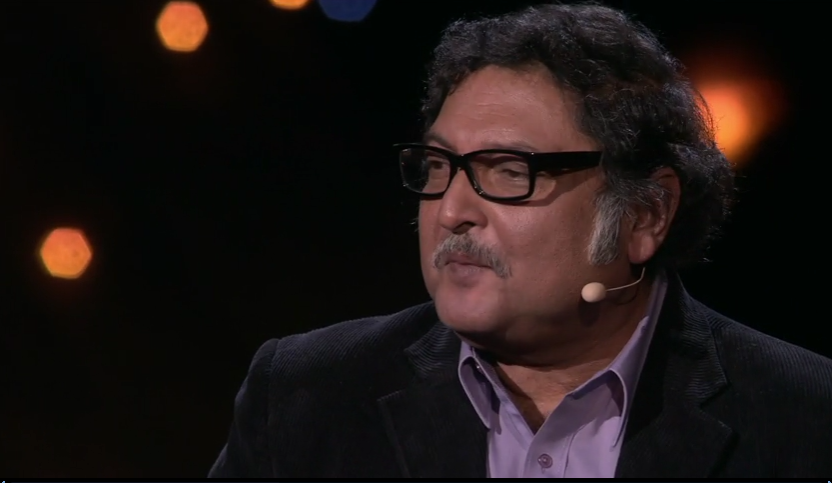When they saw me, they said, "We want a faster processor and a better mouse."
當他們看到我時,他們說:“我們想要更快一點的處理器和更好一點的鼠標。”
So I said, "How on Earth do you know all this?"
我說:“你們到底是怎么知道全部這些的?”
And they said something very interesting to me.
然后他們告訴了我一些非常有意思的事情。
In an irritated voice, they said, "You've given us a machine that works only in English, so we had to teach ourselves English in order to use it."
他們帶著生氣的口吻說:“你給了我們一臺只能用英語動起來的電腦,所以我們只能自己教自己英文才能用得了。”
I've...That's the first time, as a teacher, that I had heard the word "teach ourselves" said so casually.
那是我作為教師,頭一次聽人如此隨意地說“教自己”。
Here's a short glimpse from those years.
來回顧一下那幾年。
That's the first day at the Hole in the Wall. On your right is an eight-year-old. To his left is his student. She's six.
那是有了墻洞的第一天。你們右邊方向的孩子8歲。他左邊的是他的學生,六歲。
And he's teaching her how to browse.
他正在教她怎么瀏覽頁面。
Then onto other parts of the country, I repeated this over and over again, getting exactly the same results that we were.
跟著在這個國家的其他地方,我一再地重復這個實驗,得到的結果都是相同的。
An eight-year-old telling his elder sister what to do.
一個八歲的孩子在教他的姐姐如何操作。
And finally a girl explaining in Marathi what it is, and said, "There's a processor inside."
最后一個女孩用馬拉地語解釋這是什么,她說:“里面有個處理器。”

So I started publishing. I published everywhere.
于是我開始了宣傳。我四處宣傳。
I wrote down and measured everything, and I said, in nine months, a group of children left alone with a computer in any language will reach the same standard as an office secretary in the West.
我記錄并評估每件事。我說,在九個月的時間里,一群孩子與一臺設置成任何語言的計算機單獨在一起,將會達到同西方辦公室秘書一樣的操作水準。
I'd seen it happen over and over and over again.
我看到這樣的事一再重演。











